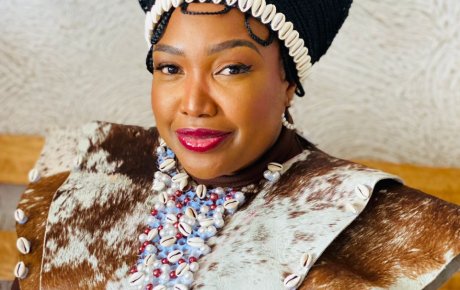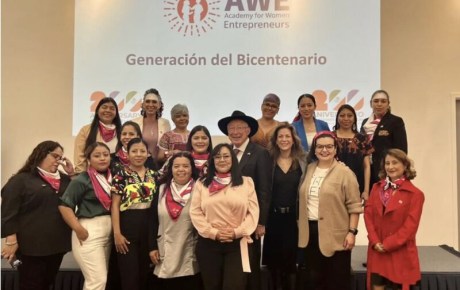Food Security Seminar Lincoln, Nebraska
HEIDI MANLEY
The U.S. Department of State hosted our first-ever Fulbright food security seminar as part of our flagship Fulbright program in Lincoln, Nebraska.
It was hosted in collaboration with the University of Nebraska-Lincoln and the Institute of International Education.
We had 77 Fulbright foreign students participate in this first food security seminar. These students are all from developing countries.
The seminar's purpose was to bring together a number of our Fulbright foreign students to explore an issue that is deemed critical by the U.S. Department of State.
It's one of our priority issues. And that is the global concern of food security.
ASSOUMANE ALHASSANE MAIGA
Global food security is a huge issue, a huge concern for me.
NAPE MOTHAPO
It's very important, not only to South Africa, not only to Africa, but to the global society as a whole.
HARUN ARMAGAN
When I hear global security, the first thing that comes to my mind is the right for everyone to reach food and the water they need to survive.
SARA MOUKARZEL
How the availability of food to individuals might affect politics, might affect general health and long-term sustainability.
ROCK ANDREA
In Haiti, there are more than four million people who are facing food insecurity and vulnerability. Accessibility to food is a problem for them.
HOA NGUYEN
Even though Vietnam is now the second-largest exporter of rice, we still have poor people who lack food.
As an American farmer, what does food security mean to you?
MARK GUSTAFSON
To me, food security is the ability to produce enough food and distribute it more equitably, but do it in a sustainable way so that you can continue to do that in the future.
My name is Mark Gustafson. I'm a fifth-generation farmer living in the house that I grew up in. We have 900 acres of dry land or rain-fed crops. Corn and soybeans, principally.
We farm in hills, which means that it's a highly erodable soil, so we have to farm using minimum tillage practices in order to protect our soil.
We farm corn and soybeans. We've tried some food-grade corn, some white corn. We've also, in the past, raised soybeans.
I don't like to see the environment degraded. Some of our waterways have gotten polluted. I think we're working on addressing that and have made some significant strides.
But you've got to look at how you're impacting other aspects of life, the environment, you've got to do it in an environment friendly, sustainable over time way.
Welcome to UNO. What we do at the facility is we work on some major crops for improving yield and nutritional qualities. To keep pace with the growing population, we need to generate more food, healthier food.
This machine is called a scanning electron microscope. So it basically helps you see the surface, the detailed structures. This one can go up to 500,000 magnification. I think the ... goes to 0.5 nanometers. So, you can really see lots of details.
HEIDI MANLEY
We really want the students to gain an understanding of the global issue of food security through economics, through engineering, through actual agriculture itself.
HARUN ARMAGAN
The highlight of the seminar is working with people from different disciplines makes your understanding and point of view wider.
NAPE MOTHAPO
I have learned that food security is highly complex. It requires integration of different disciplines. We have to know that there are people in crop genetics who are mainly developing crops, or developing genetically modified crops, as a result of the high growth population.
SARA MOUKARZEL
It was like a wake-up call. Coming here gives you a different type of perspective. It makes you want to wake up and say that individual effort must be put to it.
ROCK ANDREA
I learned from this seminar that there is a big relationship between food safety and food security.
HARUN ARMAGAN
I am very thankful to Fulbright for sure. They gave me this chance to meet agricultural, engineering fellows here. That's good to know that these people will be leaders of their countries and contributors to global food security in a couple of decades. It's good to be here, in this case. Thank you.



